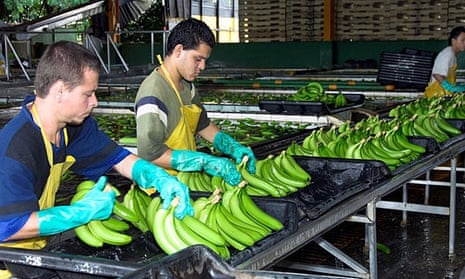The supply chain hub has explored a fantastic range of topics this year, as the five most read stories of 2014 demonstrate.
Scott Poynton’s feature on deforestation looks at the huge potential for a more sustainable global food system as palm oil giants such as Wilmar and Reckitt Benckiser make “no deforestation” commitments. Only time will tell what impact these have.
In another brilliant read, coffee expert Tony Wild delves into the dark world of civet coffee before going on to describe the more positive steps being taken by Rarefied, a company enabling habitat and biodiversity conservation, and smallholder education and income, through its production of guaranteed wild civet coffee.
Food and drink aside, Erin Switalski examines the weak government regulations doing little to prevent women from being exposed to serious chemicals found in cosmetics – including those linked to breast cancer, hormone disruption and reproductive problems - while David Rhode looks at the certification scheme for diamonds that’s doing more harm than good.
As for Apple, is it cleaning up its act on labour rights? Have a read of Duncan Jefferies’ piece to find out more.
1.Wilmar’s ‘no deforestation’ goal could revolutionise food production
After years of lobbying the world’s largest palm oil company has promised to end deforestation and exploitation - will it set a new threshold for responsible food production?
2.Civet cat coffee: can world’s most expensive brew be made sustainably?
Coffee derived from the faeces of the civet cat has spawned a cruel industry. Will sustainable production leave a better taste?
3.Danger in the drugstore: what women need to know about cosmetics
US law gives regulators little power to prevent companies using harmful chemicals in everyday products
4.Is Apple cleaning up its act on labour rights?
Tough production schedules and slim margins lead to poor labour conditions in the electronics industry. Duncan Jefferies asks if progress is being made
5.The Kimberley Process is a ‘perfect cover story’ for blood diamonds
We need a new system to force the jewellery industry to promote ethical mining and gem trading techniques
The supply chain hub is sponsored by the Fairtrade Foundation. All content is editorially independent except for pieces labelled “brought to you by”. Find out more here.
Get involved!
Let us know what your most memorable story or issue around supply chains was in 2014. Tweet us @GuardianSustBiz with #GSB2014. To get in touch with ideas for coverage in 2015, email tess.riley@theguardian.com
This content is brought to you by Guardian Professional. Become a GSB member to get more stories like this direct to your inbox.

Comments (…)
Sign in or create your Guardian account to join the discussion